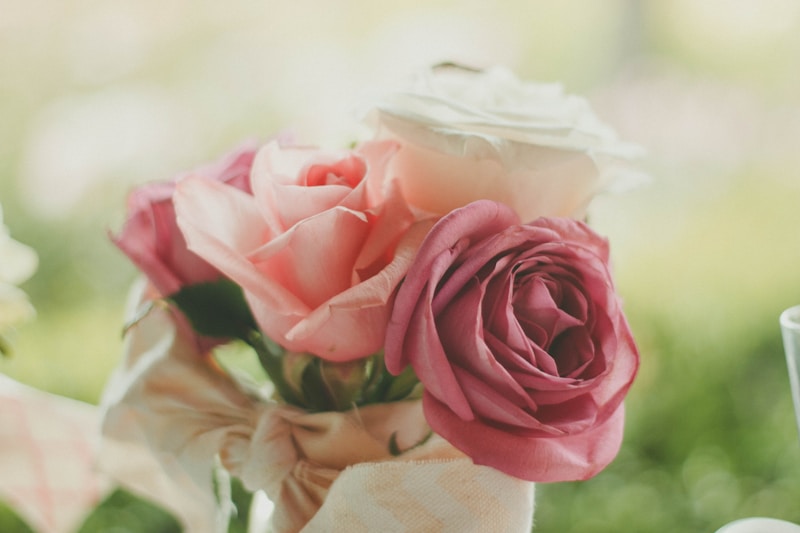Rooted in Culture: Wedding Symbolism - A Deep Dive into Tradition
Understanding Wedding Symbolism Across Cultures
Weddings are not just a union of two individuals; they are a rich tapestry of cultural traditions, deep meanings, and beautiful symbolism. The concept of wedding symbolism varies significantly across different cultures, yet it often shares common themes of love, unity, and prosperity. This article aims to explore the various wedding symbols rooted in different cultures and what they signify.
The Significance of Symbols in Weddings
Symbols are essential in weddings as they encapsulate the couple's hopes, dreams, and heritage. From rings to flowers, each symbol carries unique significance that can tell a story about the couple's history or cultural background. Understanding these symbols can help couples personalize their weddings to be more meaningful, honoring their ancestral traditions while creating new ones.
Common Wedding Symbols and Their Meanings
| Symbol | Meaning |
| Wedding Rings | Symbol of eternal love and commitment. |
| White Dress | Purity and new beginnings. |
| Cake Cutting | Sharing the first meal together as a couple. |
| Bouquet Toss | A way to bring good luck to single friends. |
| Unity Candle | Two lives becoming one. |
Western Wedding Traditions
In many Western cultures, weddings are celebrated with a variety of symbols that have become deeply ingrained in the wedding ceremonies. One of the most recognizable traditions is the exchange of wedding rings, signifying the couple's commitment and love for one another. The circular shape of the ring represents eternity, with no beginning and no end.
Another significant symbol is the white wedding dress, which has become a widely recognized sign of purity and innocence. The tradition was popularized in the 19th century when Queen Victoria wore a white gown for her marriage to Prince Albert. This choice changed the perception of bridal attire and has influenced countless weddings since.
Eastern Wedding Traditions
In contrast, Eastern cultures have their own unique symbols that hold deep meaning. For example, in many Asian cultures, the color red is predominant in weddings, symbolizing good luck, joy, and prosperity. In Chinese weddings, it's traditional for the bride to wear a red gown known as a qipao, which is adorned with intricate details showcasing happiness and fertility.
Furthermore, during Indian weddings, rituals such as the "saat phere" (seven rounds) around a sacred fire represent the couple's vows to each other, symbolizing their commitment to support and nurture one another throughout their lives. Each of the seven rounds signifies a specific blessing, including spiritual companionship, strength, and wealth.
The Role of Flowers and Decor
Flowers also play a crucial role in wedding symbolism across cultures. In Western weddings, the bouquet and floral arrangements often symbolize fertility and new beginnings. The tradition of carrying a bouquet dates back to the Roman times when brides would carry herbs and spices to ward off evil spirits. Today, many couples select flowers that have personal or cultural significance, making the floral selection a deeply emotional aspect of the ceremony.

Incorporating Cultural Symbols into Your Wedding
As couples plan their weddings, incorporating cultural symbols can add a layer of profound meaning to the event. Here are some practical suggestions:
- Research Your Heritage: Understanding your family’s traditions can provide insights into meaningful rituals and symbols. This can lead to a more personalized and culturally rich celebration.
- Communicate with Family: Involving family in the wedding planning process can help bridge generations while honoring cherished customs. This dialogue may introduce symbols that have been passed down through the family.
- Blend Traditions: For couples from different cultural backgrounds, merging symbols and rituals can create a unique ceremony that reflects both heritages.
Conclusion: The Power of Wedding Symbolism
Wedding symbolism is a powerful reflection of cultural heritage and personal values. By understanding and incorporating various symbols into your wedding, you can enrich the experience, making it not only a celebration of love but also a tribute to traditions. Remember, each symbol carries unique meaning; whether it’s the unity candle representing your profound bond or the ceremonial attire reflecting your heritage, every element will contribute to your story. As you plan your wedding, take the time to explore these symbols deeply and choose what resonates with you. This thoughtful approach will ensure that your day is as memorable as it is meaningful.
In summary, when you root your wedding in cultural symbolism, you're not just participating in a ritual; you're engaging in a meaningful tapestry of shared experiences, stories, and values that resonate through generations. Remember to respect and celebrate these traditions, as they are an intrinsic part of who you are as individuals and as a couple.
Note: As you navigate your wedding planning, consider consulting with cultural experts or historians if you wish to delve deeper into specific customs associated with your heritage.